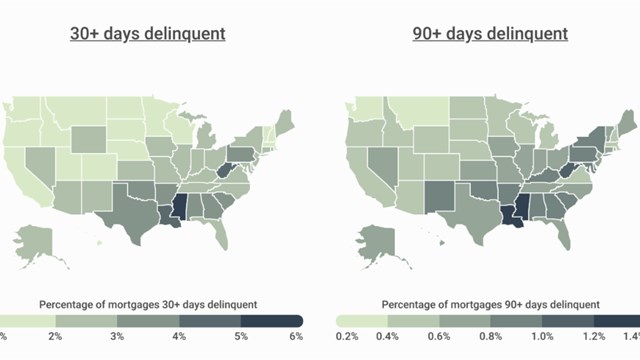While many states and localities regulate how condominium, co-op and HOA communities govern themselves, New Jersey is unique in its adoption of P.L. 2017, Ch. 106 (S-2492/A-4091) - more commonly known as the Radburn Act - in July of 2017. The law governs procedures around community board elections and voter participation rights, and its mandates have made board elections in New Jersey the most transparent and open in the nation. Among these requirements are double-blind ballots - and the counting of those ballots in a public forum under very strict rules.
Stay Inside!
The intention of Radburn was to shed light on how the state’s boards conducted much of their business - requiring meetings to be held in person, and mandating a degree of openness and due process that had not necessarily been how some boards did things prior to the Act’s implementation. Boards adjusted, communities adapted, and things seemed to be going fine...until Radburn met COVID-19. Completely contrary to Radburn's efforts to open the blinds on community elections, throw back the curtains and crack the windows so to speak, the COVID-19 pandemic required physical separation. Large public gatherings - including annual meetings, elections, and the like - were potential super-spreader events, and to be avoided at all costs.
Enter Zoom - the online meeting platform that over the last year has become ubiquitous. When the pandemic hit, “The governor signed off on legislation and law to allow virtual corporate meetings for non-profit organizations such as condominiums and co-ops, almost immediately,” says Scott Piekarsky, an attorney with Phillips Nizer in Hackensack, New Jersey. “Prior to that, there was a legal obstacle; meetings had to be in person. Now there is statutory authority to do it [virtually].” This legislation will certainly stay in effect for the duration of the pandemic, and it’s entirely possible that it will remain part of the fabric of community life even after we’re able to meet in person again.
“Radburn had a lot of open due process procedures and protocols, but because the state passed these changes, it’s unlikely judges will entertain challenges,” explains Piekarsky. “We’ve done a good number of these elections on Zoom. We use a double-blind envelope, and we did everything required, live. We showed ballots, etc., with board and management and volunteer inspectors. There was also a ballot box, which Radburn requires. Everyone masked and distanced. It all went fine.”
What Does the Future Look Like?
Piekarsky says that when the pandemic is over, he suspects that some communities may continue to use Zoom, while others will move back to in-person meetings. In many communities, the social aspect of meeting and seeing your neighbors is something many look forward to. Especially now, a year in, people are pining to get out of their homes and have some actual, in-the-flesh interaction.
“In-person meetings will come back,” Piekarsky predicts, though he says that “Board meetings may be more likely to remain on Zoom, as may workshop meetings for board members - the reason being that in most cases board members have full-time jobs and other responsibilities, so it’s often difficult to get to a meeting physically. We even had a New Jersey Supreme Court committee meeting on Zoom recently. The judge said he expects some of the virtual to continue. Overall, it might be a positive change that we’re seeing.”
Necessary Changes
So, given that the State of New Jersey has made accommodations for conflicts between the law and the pandemic, should individual condominium, HOA, and co-op communities do the same, and formalize adaptations to the reality of the times into their governing documents?
According to Piekarsky, switching to virtual meetings doesn’t require a change to your governing documents - but you do have to pass a resolution allowing the option, and draft protocols for how virtual meetings are to be conducted. “There are a lot of provisions in Radburn that would require documents to be amended, or written consent obtained from members stating that they will accept notices and send in votes electronically,” he says. “When I’m working on updated documents for communities now, we are including these types of amendments.”
There’s that old adage about necessity being the mother of invention; in the case of New Jersey and the state’s unique Radburn legislation, necessity required those with the power to make decisions step up - and they did. Despite the realities posed by COVID-19, community leaders and their legal advisors have found a way to honor and carry out the Radburn Act’s spirit of transparency and good governance.







Leave a Comment